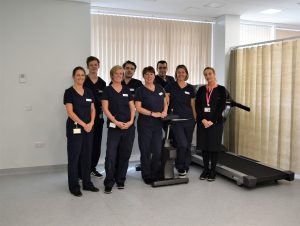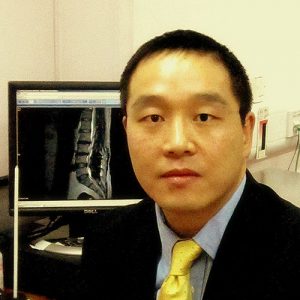More and more people are suffering with back, neck and muscular disorders in the UK today. The impact on our working life is increasing with more than 31 million working days lost at a cost of £14bn to the economy.
Most people will experience an episode of acute back pain at some point, with attacks often occurring from exasperating a previous condition. Today’s lifestyle plays a significant role in the increasing prevalence of back related disorders. This includes poor posture, commonly caused by sitting for long periods of time at a desk, along with living a more sedentary lifestyle. Most symptoms will resolve within 6-8 weeks with self-care for mild pain, but other symptoms may require care by a healthcare professional in order to live a fuller, more comfortable life.
Our specialist physio team offer a range of treatments for back pain, including:
- Manual therapy
- Electrotherapy
- Acupuncture
- Shockwave therapy
- Pilates
- Sports massage
If the treatment you receive has not helped relieve your symptoms, or if you have had pain for a long period, our physios will recommend you see one of our Orthopaedic Consultants for further investigation. You may require an MRI scan which can be carried out at One Ashford in our specialist imaging suite. Magnetic Resonance Imaging (MRI) is a common procedure that uses magnetic fields and radio waves to produce detailed images of the body. It has revolutionised treatment for people with back pain and is considered the single best imaging study of the spine to help diagnosis and plan treatment for back pain.
Treatment with our Consultants could involve:
- Nerve root blocks
- Caudal epidurals
- Sacro iliac injections
- Spinal surgery
Mr Steven Lau, Consultant Orthopaedic surgeon at One Ashford Hospital states:
‘Generally speaking, fusion operations have a guarded outcome when it comes to back pain. The mainstays for helping back pain are with conservative measures such as activity modification, maintaining good core strength via exercises, analgesia and of course therapies such as Physiotherapy.
Spinal injections often help nerve pain and sciatica greatly via selective nerve root blocks whilst facet joint injections can provide excellent relief for back pain, but is seldom a long-term cure. In certain instances, an intradiscal injection can cure back pain secondary to an inflamed disc, and one must not overlook sacroiliac joint pain as a cause for chronic back pain.’
Why choose One Ashford Hospital?
-
Recognised by all major private medical insurers
-
Competitive fixed-price packages available with 0% interest
- New purpose-built hospital
-
Fast access to consultations, diagnostics and treatment
-
Excellent patient feedback and satisfaction ratings



 One Ashford
One Ashford One Hatfield
One Hatfield